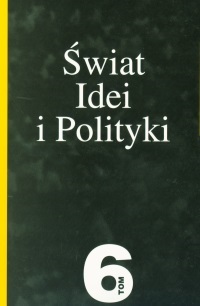Liberty as a main criterion of building institutions of democratic legal state in the concept of Jozef Tischner
DOI:
https://doi.org/10.34767/SIIP.2006.06.04Abstract
Retrospective consideration of the priest Józef Tischner.s writing permits us to describe him as a philosopher of liberty. He considered this idea as a determinant of humanity and a basis of creating a new political realty during the political system transformation. At the same time the idea of liberty as a fundamental value shaping a sense of a human being.s dignity was a subject of lively discussions. Concepts clashing with each other presented this idea in different ways. There appeared opinions absolutising a human being.s liberty with reference to individualism which derived from the tradition of J. Locke.s classical liberalism. In turn, others indicated that man should restrict his freedom for the sake of communitaristic superiority of common good over the individual one. Other opinions warned against freedom as an unfortunate gift that would destroy a human being. Tischner based his view of freedom on personalism and courageously propagated a necessity of using it to form institutions of a democratic legal state. His critical look at new political subjects and institutions as well as on a changing role of the Catholic Church is essential in this paper. The timeless character of Tischner.s proposals or suggestions in the issues of institutions or political systems is still open and may be used as an important voice in a discourse concerning the directions of political transformation.

